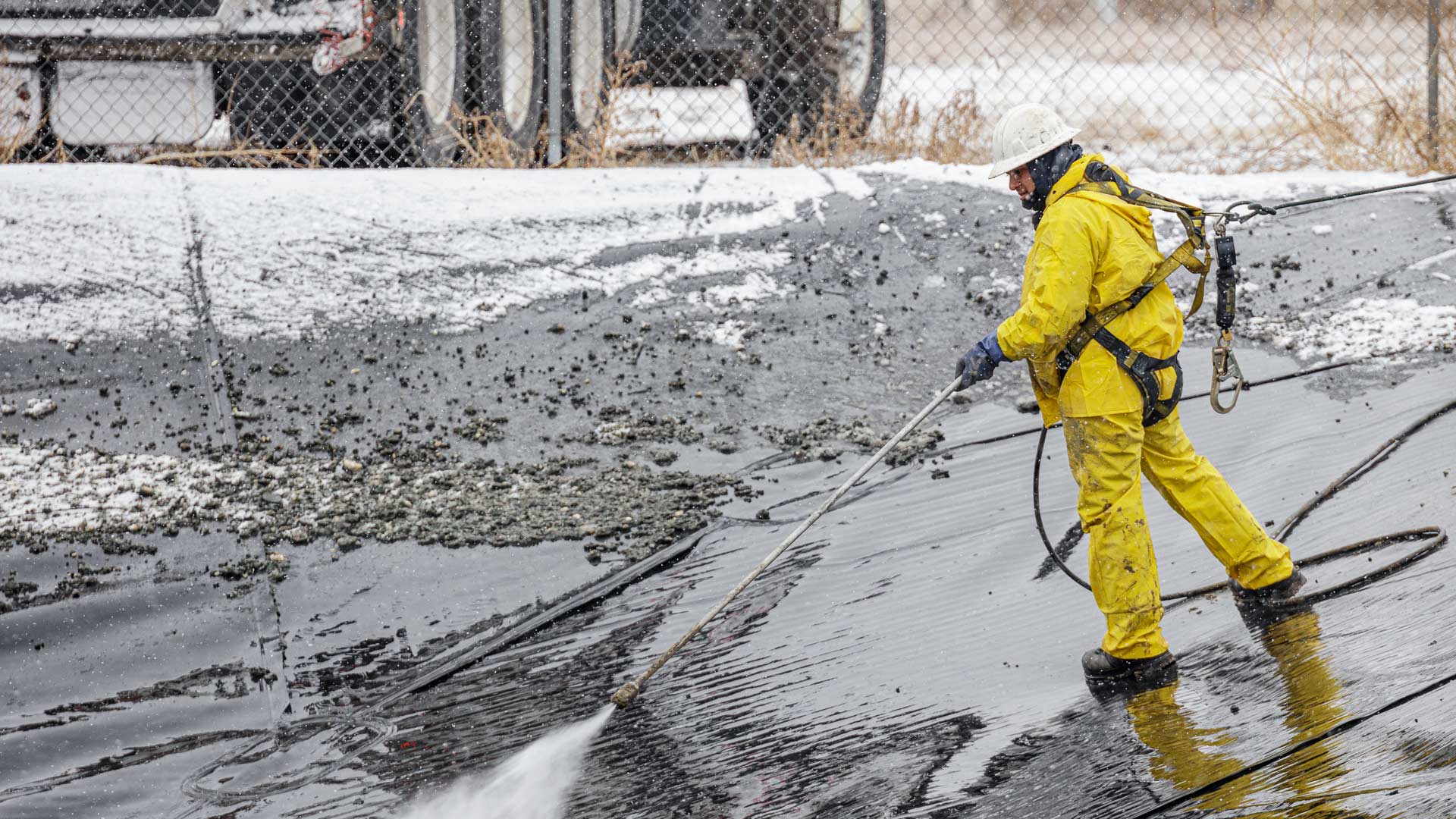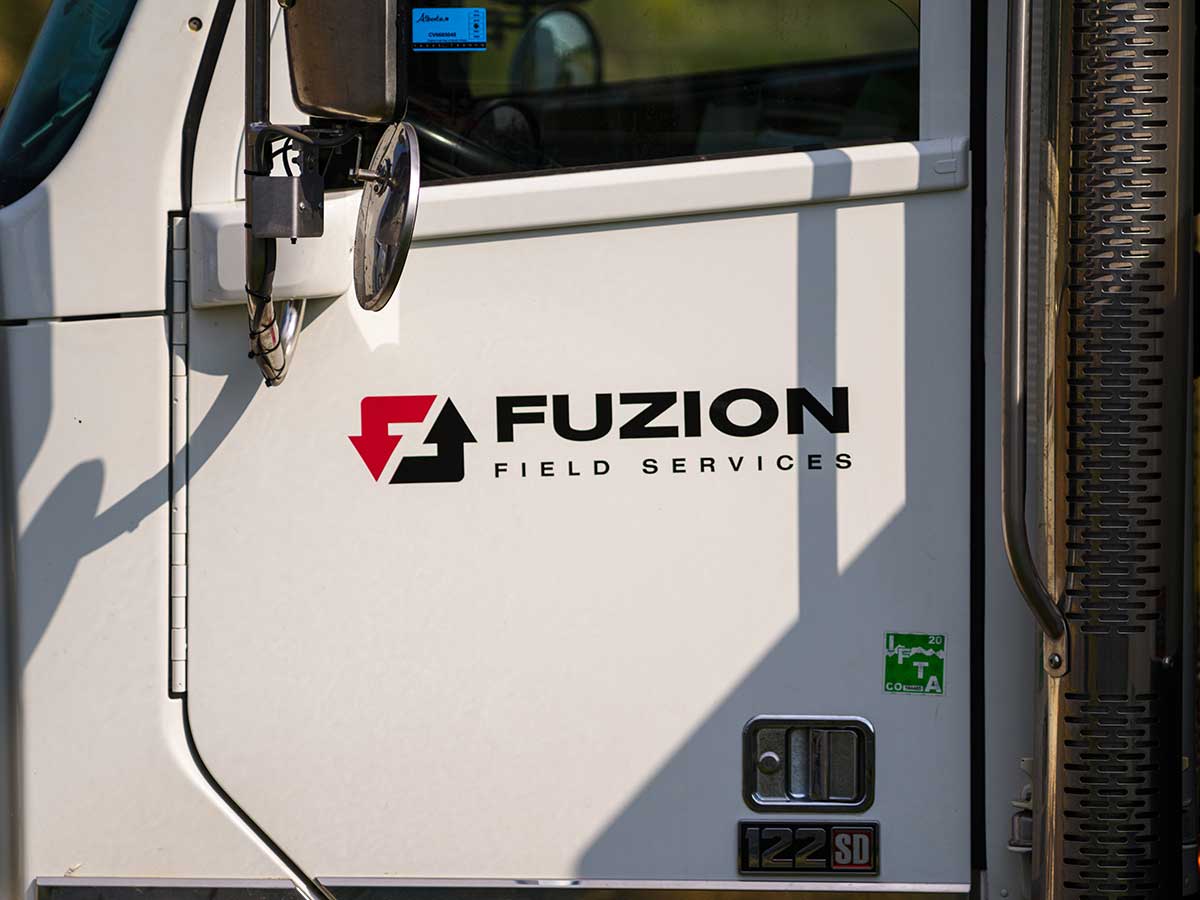Waste Management for Energy Services: Solutions for the Oil & Gas Industry
- Blog
Energy operations don’t stop for environmental concerns—but they can be brought to a halt by poor waste management. This article explores the regulatory, technical, and practical considerations of managing waste in the oil and gas sector. It also examines how Fuzion Field Services supports operators through waste management for energy services that are both compliant and efficient.
The Scope and Nature of Oil & Gas Waste
From drilling muds to produced water, tank bottom sludge to spent completion fluids, the variety of waste materials produced in energy operations is extensive.
- Some waste streams, like naturally occurring radioactive materials (NORMs), demand highly specialized containment and disposal processes.
- Others—such as oily cuttings or contaminated water—require treatment to remove volatile compounds before release.
- These materials must be processed in accordance with well-documented procedures that meet both federal and state environmental protection standards.
The U.S. Environmental Protection Agency enforces foundational rules under the Resource Conservation and Recovery Act, but these guidelines are only a baseline. Operators must also prepare for audits, maintain thorough manifests, and ensure transporters meet DOT and HAZMAT regulations. A failure to align with every stage of compliance can lead to shutdowns, remediation orders, and steep enforcement actions.
Navigating a Complex Regulatory Framework
In regions like Texas, the regulatory structure adds another layer. Here, oversight responsibilities are split between the Railroad Commission of Texas (RRC) and the Texas Commission on Environmental Quality (TCEQ). The RRC typically governs field-generated waste during extraction, while the TCEQ handles waste at downstream support facilities, such as tank cleaning yards and disposal wells.
Each agency has its own reporting requirements and inspection schedules. Companies need a coordinated strategy to meet obligations without delays. What works at one site may not apply at another, so localized expertise is critical.
The Role of Specialized Waste Management Providers
To meet these demands, companies offering waste management for energy services must go far beyond basic logistics.
- Fuzion Field Services provides a combination of regulatory knowledge, infrastructure, and specialized labor to manage waste from generation to final disposal.
- Their industrial transportation division uses DOT-compliant vacuum tankers, roll-off trucks, and trailer units to safely haul a wide range of waste materials.
- Every vehicle is equipped with tracking technology and manifests to ensure traceability during transit. Personnel are trained in spill response protocols, PPE requirements, and state-specific waste handling classifications.
These practices help clients mitigate risk while navigating transportation across multiple jurisdictions.
Leveraging Technology to Improve Accountability
At the facility level, technology has become a major advantage. Many operators now rely on barcode-scanned waste profiling, GPS-tagged transport logs, and mobile inspection apps to streamline documentation and minimize delays. These systems automatically generate regulatory reports and alert compliance teams to any irregularities.
For high-volume producers, adopting automated load balancing and tank-level monitoring can reduce overflow events and trigger maintenance before issues arise. Fuzion incorporates many of these innovations into its operations, ensuring that every shipment and cleanup is verifiable and auditable.
Rapid Spill Response and Comprehensive Site Remediation Techniques

When accidents happen—and in this industry, they inevitably do—timing is everything. Pipeline breaches, well blowouts, or ruptured containment tanks can release hazardous fluids within minutes. Fuzion Field Services is equipped with hydrovac units that use pressurized water and vacuum suction to extract and contain contaminated soil and fluids from affected areas.
Their crews follow detailed site remediation protocols, which often include deploying absorbent booms, conducting pH and conductivity tests, and coordinating with environmental consultants. In many cases, restoration efforts include soil replacement or stabilization strategies to ensure the site can safely return to service.
Innovative Process Improvements for Effective Waste Volume Reduction
Proactive waste management for energy services also involves upstream process improvements. For instance, closed-loop mud systems reduce the generation of liquid waste during drilling, while solidification agents allow for safer disposal of slurry-based waste. Separators installed at the wellhead can capture and isolate oil residues, preventing contamination of otherwise reusable water.
These engineering controls reduce disposal volumes and the frequency of regulatory inspections. They also represent a company’s investment in pollution prevention and long-term environmental responsibility.
Meeting Public Expectations with Technical Transparency
The broader social and environmental impact of waste practices has never been more visible. Communities located near energy production sites are increasingly concerned with air quality, water contamination, and soil degradation. Public scrutiny of flare releases and truck traffic has spurred calls for greater transparency from energy operators.
Operators who implement well-structured waste management plans for energy services—and team up with Fuzion—can showcase a strong track record of environmental responsibility. Documented containment plans, spill logs, and soil quality reports help build trust with regulators and residents alike.
Forward-Thinking Waste Management Strategy

As expectations continue to evolve, successful operators must shift from a reactive mindset to a proactive model. Fuzion Field Services takes this approach by continuously investing in regulatory training for their crews, updating their fleet with higher-capacity containment units, and integrating new reporting tools that align with state portals.
Their approach to waste management for energy services reflects not only technical execution but also long-term strategic planning. Clients benefit from fewer disruptions, lower incident rates, and better preparation for surprise inspections.
Handling Final Disposal with Confidence
Operators often underestimate the complexity of final disposal. A single load of waste may require profile approval from a disposal site, certificate of acceptance, and lab testing to confirm BTEX, chloride, or total petroleum hydrocarbon levels. Some materials must be stabilized chemically before landfill acceptance, while others are directed to thermal treatment or injection wells.
Fuzion’s team guides clients through every step, including pre-approval coordination and sampling protocol adherence. These steps ensure compliance and protect operators from regulatory surprises down the line.
Build Environmental Confidence with Fuzion Field Services
Waste management for energy services will remain a central pillar in regulatory planning and risk mitigation for energy companies. Fuzion Field Services provides complete, transparent, and technically grounded solutions for every stage of the waste lifecycle. Contact us today for more information.